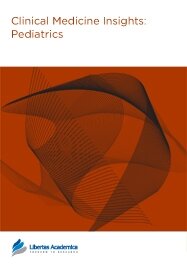

Publication Date: 30 Sep 2008
Journal: Clinical Medicine Insights: Pediatrics

1Centro de Investigación en Nutrición y Salud (Center for Nutrition and Health Research), National Public Health Institute, Cuernavaca Morelos, Mexico. 2Centro de Investigación en Salud Poblacional (Center for Population Health Research) National Public Health Institute, Cuernavaca Morelos, Mexico.
Abstract
Background: Maternal nutrition and some variables are the main determining factors of birthweight and delayed intrauterine growth of children.
Objective: To explore the association between the mothers’ biological and sociodemographic characteristics, and the anthropometry status in children under five years of age.
Design: The population consisted of a sub-sample of 1,047 mother-and-child selected pairs from the probabilistic National Nutrition Survey, carried out in Mexico. Mother-and-child pairs included mothers aged 12 to 49 years, with children under five years of age. Data on sociodemographic characteristics, obstetric history, 24-hour recall dietary intake, and the women and children’s anthropometry were collected. The association between maternal characteristics and children’s anthropometry status was assessed using multiple logistic regression models.
Result: Nearly 16.7% of the children <5y of age were stunted (13.5% ≤2y and 18.8% >2y). The height/age of the children was severely affected by maternal height and birth order. In addition, the interaction between socioeconomic level and maternal schooling had a marginal effect (p = 0.09) in the ≤2y group. On the other hand, whether the family received social services and the interaction between maternal height and a dichotomy urbanism variable were significant ( p = 0.05) and (p <0.01) respectively in >2y group.
Conclusion: Some biological and socioeconomic characteristics among mothers have a negative effect on their children’s attained size, especially in the period between 2 and 5 years of age.
PDF (1015.32 KB PDF FORMAT)
RIS citation (ENDNOTE, REFERENCE MANAGER, PROCITE, REFWORKS)
BibTex citation (BIBDESK, LATEX)
The publishing experience in Libertas Academica journals is unique. Readers can feel satisfied that publications are peer reviewed. Authors follow simple steps to reach final stage of publication. All readers have access to articles. Journal subscriptions or medical library access is not needed.

All authors are surveyed after their articles are published. Authors are asked to rate their experience in a variety of areas, and their responses help us to monitor our performance. Presented here are their responses in some key areas. No 'poor' or 'very poor' responses were received; these are represented in the 'other' category.See Our Results
Copyright © 2013 Libertas Academica Ltd (except open access articles and accompanying metadata and supplementary files.)
FacebookGoogle+Twitter
PinterestTumblrYouTube